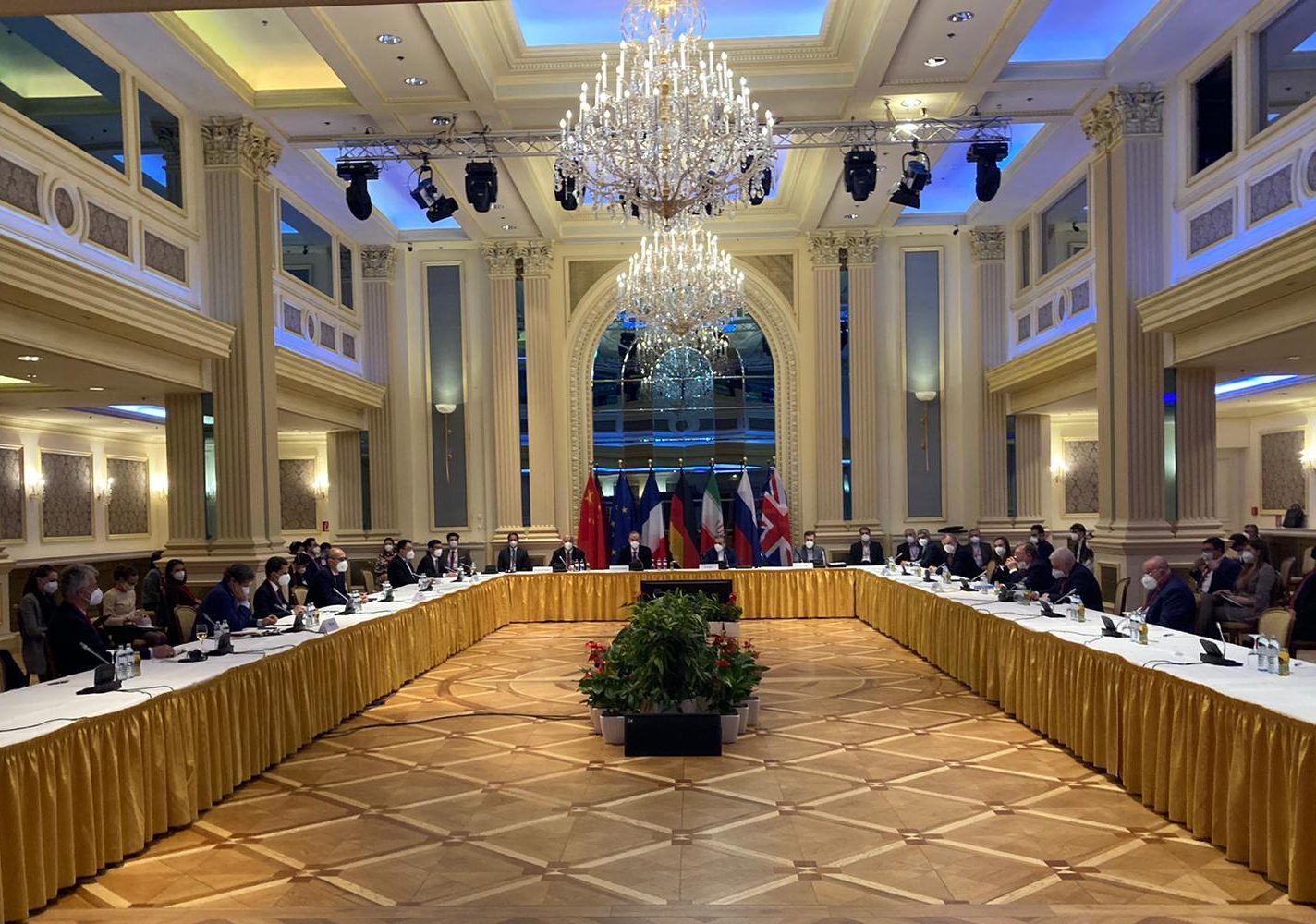Israeli Defence Minister Benny Gantz is also heading to the United States for a one-day visit on Thursday to discuss the Iran nuclear deal.
The European Union [EU] envoy coordinating the ongoing Vienna nuclear negotiations said a deal could be reached in the upcoming round of talks next week, the official told reporters on Wednesday following the fifth round of meetings.
“I am sure that the next round will be the one in which we will finally get a deal,” Enrique Mora, chief coordinator of the talks, told reporters.
Mora’s comments came following a Joint Commission meeting with the remaining parties of the deal – Iran, Russia, China, France, Britain, Germany.
However, senior diplomats from the E3 – Britain, France and Germany – were more cautious towards a potential deal, saying that “the most difficult decisions lie ahead”.
“We have continued to make progress and important parts of a future deal have now been fleshed out, but the most difficult decisions lie ahead. We have of course worked based on the principle of nothing is agreed to [until] all is agreed,” the diplomats said in a statement.
“Together we understand that time is on nobody’s side. Decision time is coming up. We will reconvene next week,” they added.
Iran’s top nuclear negotiator Abbas Araqchi also told Iranian state TV on Wednesday that while there are barriers in the path of reviving the Joint Comprehensive Plan of Action [JCPOA], they can still be resolved.
“Differences have reached a point where everyone believes these differences are not insolvable,” said Araqchi. However “the details are important and Iran’s firm positions are important to be observed,” he added.
The fifth round of talks were initially believed to be the final set of negotiations in Vienna but Mikhail Ulyanov, Russia’s top representative at the meetings, tweeted that the Joint Commission decided to adjourn for this week and resume at the end of next week.
The Vienna talks on full restoration of #JCPOA reached the point when there is an objective need to consult with capitals on the remaining issues which require political decisions. Therefore the Joint Commission decided to make a break and resume talks at the end of next week.
— Mikhail Ulyanov (@Amb_Ulyanov) June 2, 2021
Earlier reports stated that negotiators aimed to reach a deal ahead of Iran’s June 18th presidential election, which provides the Vienna talks with a week to reach an agreement. Delegates believe the tight deadline would make striking a deal less likely.
Read also: Iran says ‘significant progress’ made at Vienna talks
US State Department spokeswoman Jalina Porter told reporters that the chief American negotiator, Rob Malley, would be returning to Washington though hinted the talks were making slow progress.
“Some progress has been made,” she told reporters. “This isn’t going to be a quick or easy process.”
“No stalemate”
The EU’s statements echo those made earlier this week by Iran’s Foreign Ministry Spokesman Saeed Khatibzadeh who announced “significant progress”.
“Each round of talks in Vienna could have been the final round. We should not rush. We have made significant progress but key issues remain,” Khatibzadeh told a televised weekly news conference on Monday.
Khatibzadeh also assured that the talks have witnessed “no stalemate”.
“All sanctions should be lifted and then it should be verified by Iran…then we will reverse our nuclear steps,” Khatibzadeh added.
According to Reuters, a regional diplomat also revealed “an agreement that would clarify the obligations of Tehran and Washington to move forward” will soon be announced.
Israeli opposition
Meanwhile, Israeli Defence Minister Benny Gantz is expected to head to the US on Thursday to discuss Washington’s efforts to revive the JCPOA, where he is expected to meet his counterpart Lloyd Austin, Secretary of State Antony Blinken and National Security Advisor Jake Sullivan “for strategic dialogue on the emerging nuclear agreement with Iran”.
Israel opposes the revival of the deal, citing concerns over the Islamic Republic’s nuclear weapon development.
On Tuesday, Israeli Prime Minister Benjamin Netanyahu said Tel Aviv “would not hesitate to risk its good ties” with the US to stop the return to the nuclear deal.
“If we need to choose, and I hope it will not happen, between friction with our great friend, the US, and getting rid of an existential threat, getting rid of an existential threat will prevail,” he said.
Gantz responded to Netanyahu’s statement, saying that differences shall be resolved through “direct dialogue behind closed doors” and “not through provocative statements that serve to harm Israeli security”.
Despite Israel’s opposition, the Joe Biden administration has repeatedly stressed its keenness on reviving the JCPOA, in a move that would reverse former President Donald Trump’s foreign policies.
The deal was initially implemented in 2015, when Biden served as Barack Obama’s Vice President. In 2018, Trump withdrew Washington from the accord and imposed crippling sanctions on Iran as part of a campaign to apply “maximum pressure” on the country.
Regional heavyweight mediator Qatar has vowed to push for the revival of the deal.
Follow Doha News on Twitter, Instagram, Facebook and Youtube







